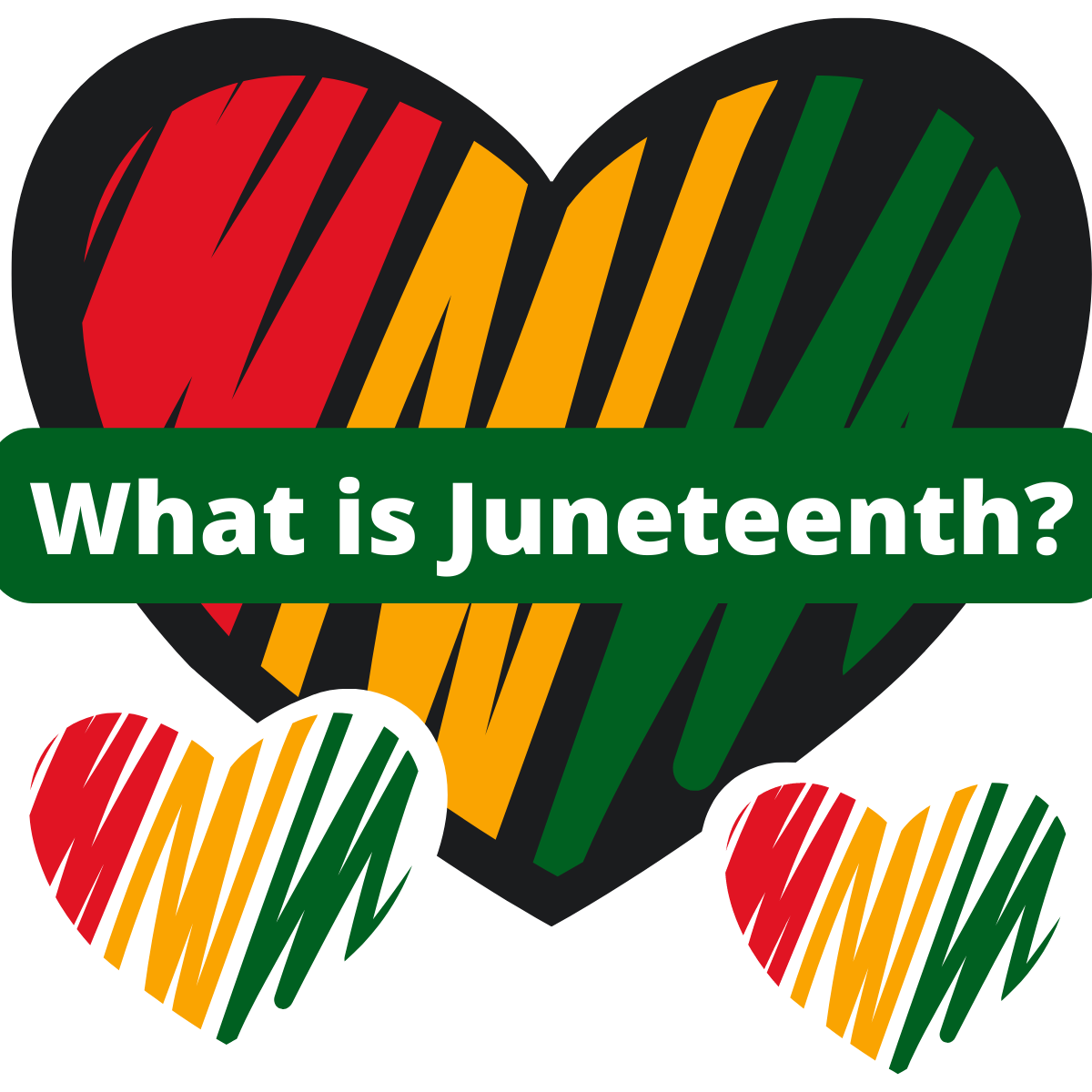
What is Juneteenth?
How did Juneteenth begin?
Juneteenth began in Galveston, Texas in 1865 when federal troops took control of the state to ensure freedom for those held in slavery. Although the Emancipation Proclamation was signed over two years prior, it didn’t instantly free those enslaved and it didn’t apply to Border States or those under Confederate control.
With the arrival of these troops, over 250,000 people were freed and Juneteenth was born. Sadly, freedom didn’t happen for everyone overnight because many enslavers didn’t let their enslaved persons know they were free until harvest season was over. As news spread, many celebrations broke out among those newly freed. However, black persons were not allowed to use public spaces to celebrate for some time. It wasn’t until 1872 when 10-acres in Huston was purchased by four former enslaved persons. This parcel of land became known as Emancipation Park and became the location used to celebrate Juneteenth; celebrations continue at this location today. Until the 1950s, it was the only public park and swimming pool in Houston open to African Americans.
It was through the Thirteenth Amendment that emancipation become national policy. It was passed by the Senate on April 8, 1864, and by the House on January 31, 1865. The joint resolution of both bodies that submitted the amendment to the states for approval was signed by President Abraham Lincoln on February 1, 1865 and ratified on December 6, 1865.
Educate yourself
In situations where you may be unsure how to support your BIPOC co-workers and community members it’s always a good idea to educate yourself. There is always more to learn even if you feel you know a lot.
- The African Americans Many Rivers to Cross – What is Juneteenth? By Henry Louis Gates, Jr., PBS
- A People’s Journey, A Nation’s Story, National Museum of African American History & Culture, Smithsonian
- Ex Slaves talk about Slavery in the USA, John Henry Faulk interviews former slaves about their experience in and out of slavery, ABC News
- This is Why Juneteenth is Important for America, The Root (3 minute video)
- Resources on Juneteenth, Stanford Libraries Blog
- What to the Slave is the Fourth of July?, by Frederick Douglas (1855), Hathi Trust Digital Library
- 13th Amendment of the US Constitution is Passed, Smithsonian National Museum of African American History & Culture
- Emancipation Proclamation (1863), National Archives
- The Historical Legacy of Juneteenth, Smithsonian National Museum of African American History & Culture
- Juneteenth, NAACP
- This Day in History: June 19th, History.com
- The Emancipation Proclamation, National Archives
Is Juneteenth a national holiday?
There are 47 states that honor Juneteenth as a state holiday and now Washington State will join them!
On May 13th 2021 Governor Inslee declared that beginning in 2022 Washington State will recognize Juneteenth as a state holiday. This is an exciting step in the right direction to support our community members that have endured so much.
With this announcement we look forward to seeing more public celebrations, parades and other events that many other states have in observance of this important event in our history.
What can you do to support your friends, family, co-workers and community members?
It’s important to understand what so many of our BIPOC co-workers and community members endure and have endured.
It wasn’t as simple as everyone freed their slaves on Juneteenth. Many plantation owners withheld this information until the harvest season was over. However, psychologically many were still in chains. Imagine a dark, unclean prison that doesn’t allow you to read, write or have an opinion where corporal punishment and severe abuse and neglect happen daily, along with malnutrition.
These affects take many months, years, even decades to try and overcome. Moreover, the generational trauma experienced can pass down genetically and is known as post traumatic slave syndrome. Above all, support BIPOC individuals by listening, acknowledging and taking a deep look within you to make changes necessary to tackle racism and prejudice.
How do people celebrate?
Some families have BBQs, picnics or other fun gatherings. Some cities have larger events that include parades and festivals. For example, Lifeline Connections offers its full time employees four hours per year of volunteer/civic paid time off to get involved in advocacy events, community emergency response or many other opportunities.
If you want to get involved in a Juneteenth celebration there are many throughout the Portland metropolitan area. Here are just a couple of examples:
- Juneteenth Freedom Celebration (Lifeline Connections will be there to support this important holiday)
- Juneteenth Oregon Parade
However you choose to celebrate, have a very Happy Juneteenth!
